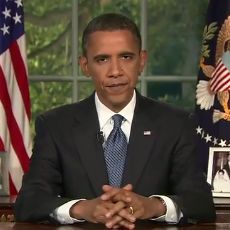http://www.challies.com/christian-living/ordinary-christian-living-for-the-rest-of-us
“‘You can’t market a book like that. It won’t sell. Nobody wants to read a book on being ordinary.’ They are probably right. Nobody wants to read a book on ordinary living because nobody aspires to be ordinary. It is not likely to sell as a book or a theme. Crazy, wild, radical, more, greater, higher, this-er, that-er, the comparatives and superlatives, these are the themes that fly off the shelves. But once we’ve been crazy and radical and wild and all the rest, why do we still feel, well, so ordinary? Why do we still feel like we’re missing out?” – Tim Challies
I don’t believe this is an argument against excellence or being proactive in things that we should be more proactive in, but rather an argument that amongst all the talk in modern Christian literature of being “awesome” and “extraordinary” and “doing big things for God” (summed up, “radical”), most of us are, well, ordinary. I’d count myself in that category. I’m an average IT guy, working at a financial company, providing for my family, ministering to a group of high school guys, who loves Christ. And it’s freeing to know that that’s okay, because the Gospel frees us to be ordinary. Are there things I could improve? Sure, no doubt. But the pressure to do something or be something big is huge it seems. And most of us are ordinary people who don’t live an extravagant, radical life and feel grossly inadequate and out of place.
This doesn’t mean some of of us won’t be extraordinary though, or that in our ordinary living extraordinary things won’t happen. And it doesn’t even mean that we shouldn’t, should the opportunity arise, pursue extraordinary things in our lives. But not everyone can or should be pursuing that (a concept handed to us by celebrity culture I believe, that we must aspire to “be awesome,” “dream huge so you can do what I’ve done” and so on; think in terms of an Academy Award acceptance speech). If everyone is extraordinary, doing extraordinary things, no one is extraordinary; the word loses its meaning. In fact, I would argue that God mostly uses ordinary people in the church to accomplish His ends throughout the world. We only see the big, headlined, mega-marketed things that are broadcasted, not the ordinary pastor in a small town, consistently shepherding a small group of people under the teaching of the gospel for 40 years.
Now if they do extraordinary things it’s because of His work and it can and does happen from time to time. Most people who accomplish incredible things for God do so because of His multiplying effect though (like Jesus with the fish and loaves), not because they were trying to “be awesome.” Rather it was precisely because they minimized themselves and got out of His way that He then did big things. In other words, extraordinary things happen because of God, not us necessarily, though certainly He uses us.
I believe the antidote to a lot of this thinking that we have to do “big things” or “be big things” (as we millennials have defined it; I guess I’m a millennial?) is a re-recovery of the Reformed view of vocation.
http://www.modernreformation.org/default.php?page=articledisplay&var2=881
http://www.firstthings.com/article/2007/01/calvin-and-the-christian-calling-20

 As expected, President Obama exploited the worst environmental disaster in our nations history for the primary purpose of promoting his and the far lefts’ cap and trade energy bill. Sure, he buttered up the masses with some warm sentiments about how upset he was concerning what he has seen and the justice that must be rendered. Then he got to his real agenda: politicizing a catastrophe currently in process for energy policy.
As expected, President Obama exploited the worst environmental disaster in our nations history for the primary purpose of promoting his and the far lefts’ cap and trade energy bill. Sure, he buttered up the masses with some warm sentiments about how upset he was concerning what he has seen and the justice that must be rendered. Then he got to his real agenda: politicizing a catastrophe currently in process for energy policy.